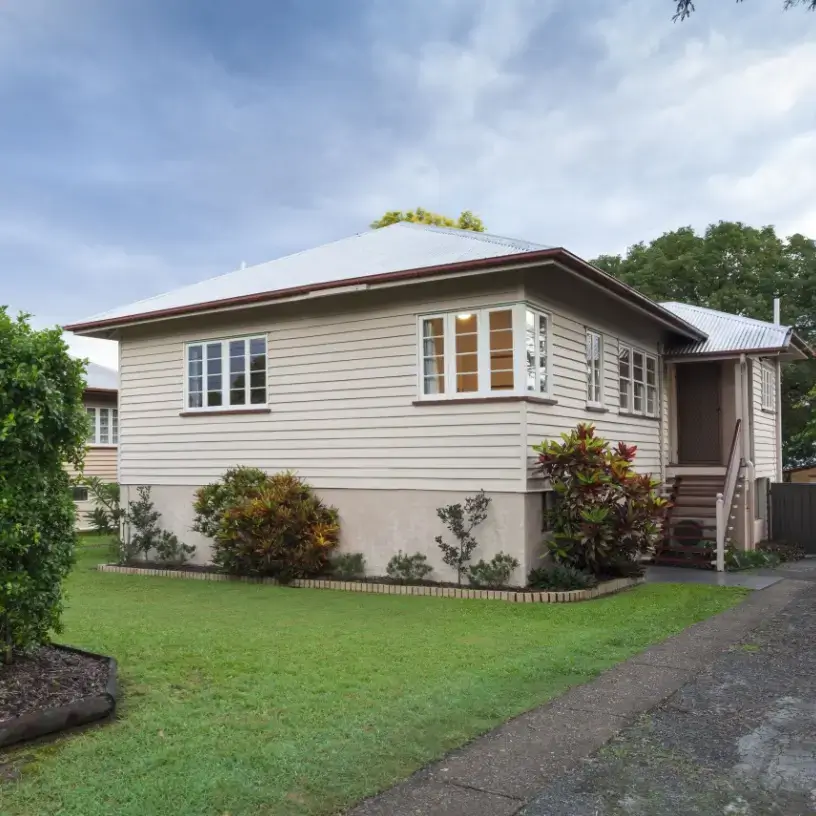Home / Compare Home And Content… / How to make a home insur…

Key takeaways
Unsure of how to make a claim on your home insurance? We’ll take you through the process, as well as other things you need to know. Here are some key points:
- Report the incident by dialing 000 in emergency cases or 132 500 in an extreme weather event.
- You can typically lodge a claim by phone or through your insurer’s online portal.
- Home insurance will not cover damages that happened before you purchased your policy.
The home insurance claim process
1. Report the incident
 In an emergency, you should always call 000 for immediate help or 132 500 for assistance from your State Emergency Service (SES) during an extreme weather event.
In an emergency, you should always call 000 for immediate help or 132 500 for assistance from your State Emergency Service (SES) during an extreme weather event.
If there’s been a break-in, vandalism or criminal damage to your property, contact your local police station within the first 24 hours of the incident and request a police report. It may be instrumental for your insurer to help progress your claim. Have all information regarding the incident available to provide to the police for their report.
2. Prepare for the claim
One of the first things to do after an incident at your home is to take photographic evidence of any damage. Make sure to include the complete scene in your photos for both the police and insurance investigations. If there’s also loss or damage to your belongings, you may want to itemise the damaged goods and try to gather their receipts or photos to prove ownership and the loss.
When preparing to file a claim, you should be aware that your insurance company may ask you to provide your phone number, policy number, any police reports and details of the contents lost or damaged. This can include photos of the damage and proof of ownership like receipts, bank statements and certificates of valuation.
It’s also worth noting that when you claim, you may have to pay an excess. An excess is the amount of money you pay towards your claim for damage or loss to your home and contents resulting from an insured event, so you should keep this payment in mind when lodging your claim.
3. Lodge your home insurance claim
The next step involves getting in touch with your home and contents insurer and letting them know about the incident. Two common ways of submitting a claim are by phone (through a dedicated claims line) or online (e.g. through a customer account portal).
Explain what has happened in as much detail as possible. Along with your verbal explanation, you may need to provide some of the documentation mentioned earlier. This all helps the assessor from your insurer’s claims team to process your losses and arrange to rebuild, replace or repair your damaged home or items up to the sum insured (the amount you’re covered for). Depending on the type of loss, your insurance company may also arrange for an adjuster to come to your property and assess the extent of the damage.
After you’ve lodged a claim, your insurer may get in touch to let you know how your claim is progressing, or even to request further information or evidence of the incident. Alternatively, they may also provide you with access to an online claims centre so you can track the progress at any time.
Settling your claim
Don’t hesitate to call your insurer and request an update on your claim any time you need to. Remember that in Australia, general insurance is regulated. For any complaints through the process, you can contact the Australian Financial Complaints Authority (AFCA). AFCA’s purpose is to provide independent and impartial solutions and outcomes for Australians who wish to submit a complaint against their insurer.
If your claim is successful
 You’ll be contacted to discuss how your claim could be settled. Settlement options can include:
You’ll be contacted to discuss how your claim could be settled. Settlement options can include:
- Replacing or repairing your contents
- Rebuilding the lost or damaged part of your building
- Issuing a store credit or a voucher to purchase replacements with
- Paying you out for the value your belongings or home, up to the sum insured on your Certificate of Insurance.
If you’re receiving a cash settlement, check with your insurer to see if they can give you an estimation of when your claim will be paid. Any cash amount you receive on your claim will be in Australian dollars, and the bank transfer could take a few days to process. You may wish to seek legal advice if you receive a cash settlement and have a mortgage on the property.
If you disagree with the outcome
While insurance claims are generally a streamlined process, they may not always go according to plan. If you feel your claim was wrongfully denied or not paid fairly, you should first contact your insurer’s Internal Dispute Resolution (IDR) department to see if you can resolve the issue directly.
If you’re still dissatisfied with how your claim is handled after the IDR process, you can contact AFCA to submit a complaint.
Do home insurance claims affect my premiums?
Yes, in most situations, your premiums will rise as a result of making a home and contents insurance claim. However, if you find your premiums have risen after a claim, there may be various ways in which you can still save on your policy to make up for this added expense.
Inclusions and exclusions
What does home insurance cover?
Home insurance policies have specific scenarios that are covered if your home is destroyed or damaged. These are known as insured or defined events. The table below is a guide to what’s generally covered by home insurance.
| Insured event | Home insurance | Contents insurance | Home and contents insurance |
|---|---|---|---|
| Storm damage | ✓ | ✓ | ✓ |
| Fire damage | ✓ | ✓ | ✓ |
| Flood damage | Optional extra | Optional extra | Optional extra |
| Earthquake | ✓ | ✓ | ✓ |
| Movement of the sea | ✗ | ✗ | ✗ |
| Vandalism | ✓ | ✓ | ✓ |
| Theft | ✓ | ✓ | ✓ |
| Impact damage (excluding deliberate damage) | ✓ | ✓ | ✓ |
| Portable contents | ✗ | Optional extra | Optional extra |
| Motor burnout | Optional extra | Optional extra | Optional extra |
| Damage from vermin (including rodents and insects) | ✗ | ✗ | ✗ |
| War and uprising | ✗ | ✗ | ✗ |
| Accidental damage | Optional extra | Optional extra | Optional extra |
| Escape of liquid (excluding the leaking item, e.g. burst pipe) | ✓ | ✓ | ✓ |
| Removing debris | ✓ | ✓ | ✓ |
| Damage from renovations | ✗ | ✗ | ✗ |
| Temporary accommodation | ✓ | ✓ | ✓ |
In every insurance policy, there are always conditions, limits and exclusions that apply to your policy. There are some items and events that an insurer will not cover under any circumstances, while in other instances, it will depend on the event that caused the damage.
For example, if a tree fell and damaged your roof, you might find that coverage differs based on what caused the fall. If it was a storm that brought the tree down, it generally will be covered; however, if it was lopping that caused the incident, the cost of repairing the roof may not be.
This is why it’s important to check your relevant Product Disclosure Statement (PDS) for full details on what your policy covers. You should also read the Target Market Determination (TMD) to make sure the product is right for you.
Can I get a home insurance policy to claim for existing damages?
No, pre-existing damage or loss will not be covered by your current home insurance policy. For example, you won’t be covered by your current insurer if your roof was damaged in a previous storm and you purchased home insurance after the fact.
Embargoes are holds on new sales put in place by an insurer in areas currently or imminently experiencing a specific risk (like a weather event or natural disaster). Policy restrictions may also apply for certain insured events such as bushfires, storms, storm surges, floods and tsunamis in the first 72 hours of cover.
With some insurers, you can still start a policy during an embargo, but you must wait the specified time before you’re covered for the specific insured event mentioned. You won’t be able to claim for damages or losses that occurred before or during this period. On the other hand, some companies won’t offer any cover until the embargo has been lifted.
Exclusions are events and items that insurers will not cover at all and include things like structural defects, deliberate damage or faulty workmanship. Usually, what you can claim for is the loss or damage caused by an insured event, not from anything else other than what’s insured by your policy.
Meet our home and contents expert, Adrian Taylor
As a General Insurance expert with over 13 years’ experience in financial services, Adrian Taylor works to make it easier for homeowners, renters and landlords to protect their home and contents. He believes it’s important for all residents (whether they rent, own or lease) to have adequate financial cover for their property and belongings in case the worse should happen.



